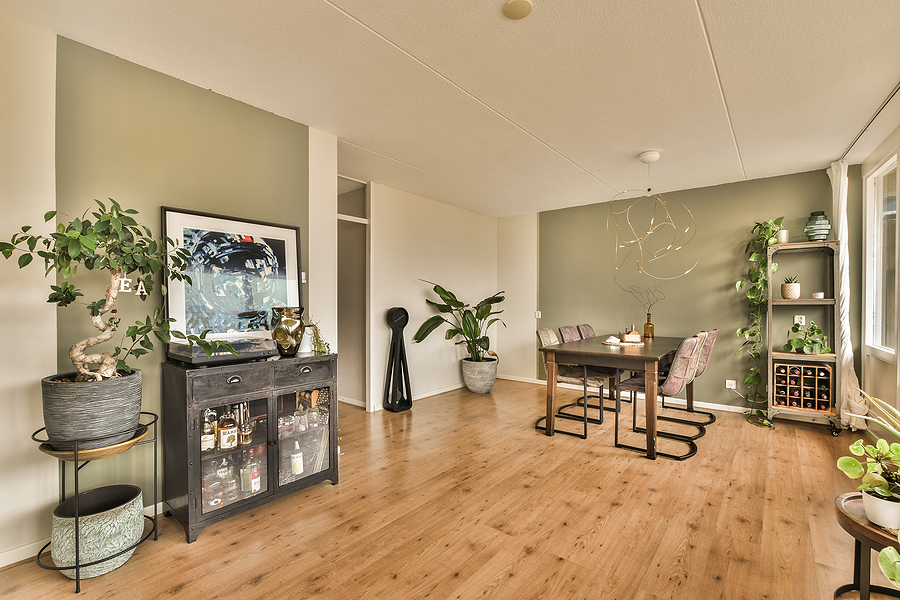Methods to Use to Clean Albuquerque Hardwood Floors Safely – Part One

Methods to Use to Clean Albuquerque Hardwood Floors Safely – Part One
The pride of your home, those stunning hardwood floors. Their history might stretch back a century or they may be a new addition. Either way, caring for them is crucial. When it comes to cleaning, it’s a careful dance to sidestep those unwanted scratches, stains, or—the heart-stopping moment—water damage.
The good news? It’s not as troublesome as it might sound. It’s all about finding those top-tier hardwood cleaners and tools tailor-made for your floors. Once you’ve done that, finding a rhythm is a breeze. Your floors will gleam like the rest of your sanctuary.
Factors Why Hardwood Floors Require Special Care
Here’s why hardwood floors need that extra tender love and care. Wood and water? They’re not exactly the best of pals. This can cause a bit of a sticky wicket when trying to maintain the cleanliness of hardwood floors. Over-saturate even newly finished floors with water and they may start “cupping”—where the water seeps to the board’s base, resulting in warping. Plus, it’s not just about water. Those seemingly harmless specks of grit on your shoes or a simple vacuum run can leave your floors scratched, dented, or stained.
So, where do we start? Get to know your wood and its finish. Water-based finishes, think water-based polyurethane, often withstand water better than oil-based ones, which are typically found in older homes. When purchasing hardwood floors, you’ll become acquainted with the varying softness or hardness of different wood types. Not forgetting the array of hard-wearing stains and finishes on offer.
Unsure about your floors? What type of wood was used? The finish applied? Don’t fret. Reach out to a local hardwood flooring contractor. They’ll steer you in the right direction.
Preparing to Clean Hardwood Floors
You don’t need to stress about weekly cleaning or waxing. Truth is, a thorough cleaning with a mop and the right solution is only needed every one or two months. That’s depending on how busy your floors get, of course. For the in-between times, a weekly dust and grit removal will do. Use a dry mop or vacuum.
Start by understanding your floors. What kind of wood and stain are they? What areas need a little extra TLC? Maybe there’s a chair leg etching a scratch line? Or a persistent water spot where the kids always kick off their muddy boots?
Next, arm yourself with gentle, hardwood-friendly tools and cleaners (a few recommendations coming up). The safest way to tackle stubborn dirt and grime? A non-abrasive, pH neutral cleaning solution paired with a lightly damp string mop.
Remember, always steer clear of:
- A sopping-wet mop
- Harsh-bristle brooms
- Ammonia or window cleaner
- Bleach
- Steam cleaners
- Any abrasive cleaning chemicals
Still unsure about a natural or commercial cleaning product? Do a little test drive. Apply a small amount on a hidden area of your floor.
How to Clean Hardwood Floors
Despite the quirks, cleaning hardwood floors is less time-intensive than scrubbing bathroom tiles or kitchen floors. Less deep cleans make it a relatively easy task once you’ve got the knack of it.
Sweep or Dry Mop
Grit on floors is annoying under bare feet, but it can also scratch your hardwood over time. To prevent this, use a soft-bristled broom or a microfiber dry mop. Dust, dirt, grit, pet hair—sweep them away at least twice a week. Pay special attention to high-traffic zones like the entrance hallways, foyer, or mudrooms.
Vacuum
Vacuuming once or twice a week is another great option. But here’s a cautionary note: test your vacuum on a hidden spot first to ensure the wheels and brushes don’t scratch your floors. Most of the time, a vacuum is no threat. But, do remember to switch off the rotating brush feature. Some models even come with a soft-pad flat floor attachment.
Commercial Wood Floor Cleaner
Commercial Wood Floor Cleaner Choosing a store-bought cleaner? Keep it simple. Go for trusted brands that promise to remove residue and dirt. They often include natural oils and sidestep harsh chemicals. This approach helps protect your floors from damage and your home from volatile organic chemicals (VOCs).
Avoid cleaners that claim to “shine, wax, or enhance the color” of your floors. They might seem effective at first, but harsh chemicals can wear down the finish and even the patina of the wood over time.
Above all, follow the instructions on the bottle for diluting and cleaning with the product.
